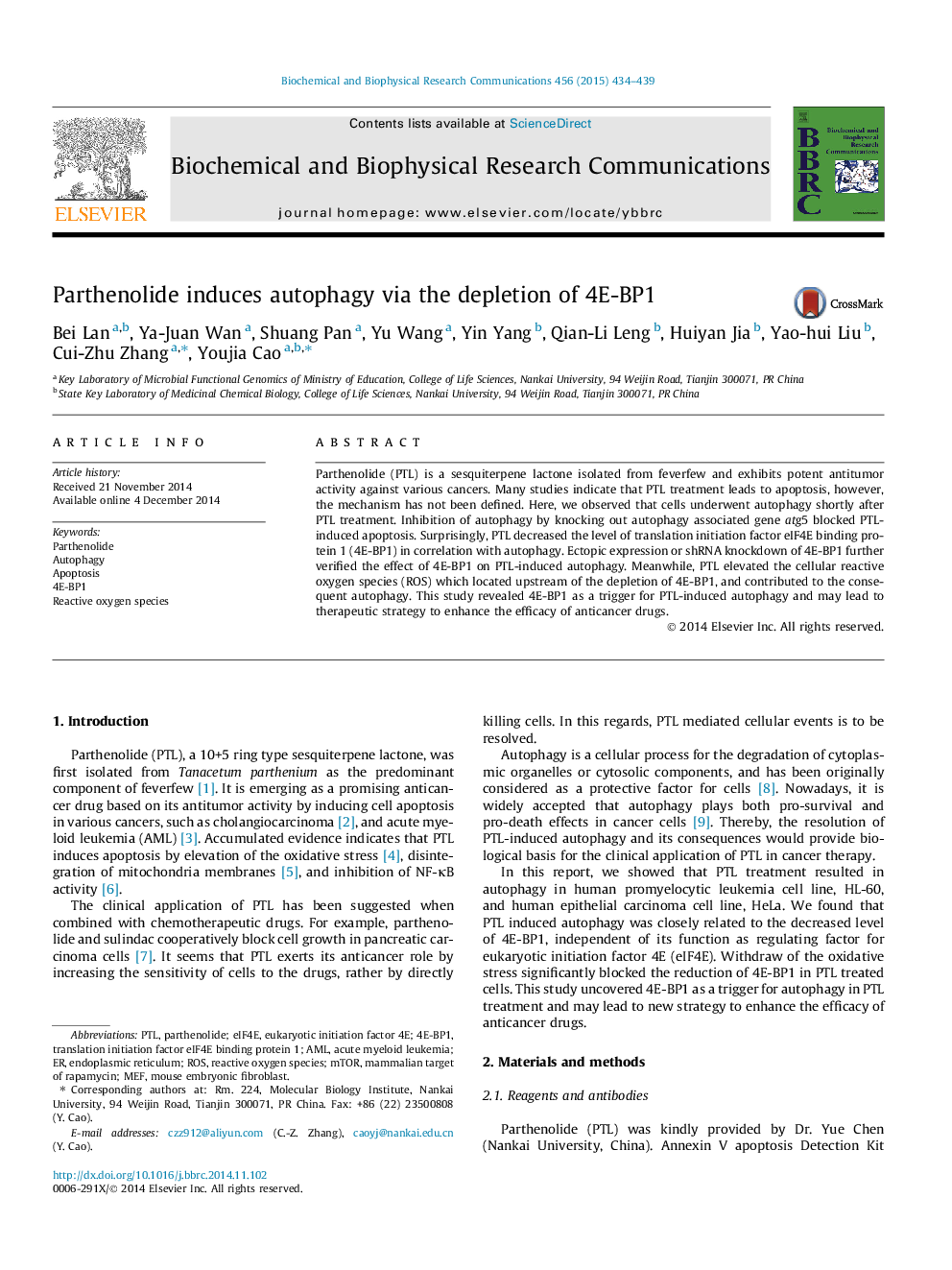| Article ID | Journal | Published Year | Pages | File Type |
|---|---|---|---|---|
| 10753685 | Biochemical and Biophysical Research Communications | 2015 | 6 Pages |
Abstract
Parthenolide (PTL) is a sesquiterpene lactone isolated from feverfew and exhibits potent antitumor activity against various cancers. Many studies indicate that PTL treatment leads to apoptosis, however, the mechanism has not been defined. Here, we observed that cells underwent autophagy shortly after PTL treatment. Inhibition of autophagy by knocking out autophagy associated gene atg5 blocked PTL-induced apoptosis. Surprisingly, PTL decreased the level of translation initiation factor eIF4E binding protein 1 (4E-BP1) in correlation with autophagy. Ectopic expression or shRNA knockdown of 4E-BP1 further verified the effect of 4E-BP1 on PTL-induced autophagy. Meanwhile, PTL elevated the cellular reactive oxygen species (ROS) which located upstream of the depletion of 4E-BP1, and contributed to the consequent autophagy. This study revealed 4E-BP1 as a trigger for PTL-induced autophagy and may lead to therapeutic strategy to enhance the efficacy of anticancer drugs.
Related Topics
Life Sciences
Biochemistry, Genetics and Molecular Biology
Biochemistry
Authors
Bei Lan, Ya-Juan Wan, Shuang Pan, Yu Wang, Yin Yang, Qian-Li Leng, Huiyan Jia, Yao-hui Liu, Cui-Zhu Zhang, Youjia Cao,
